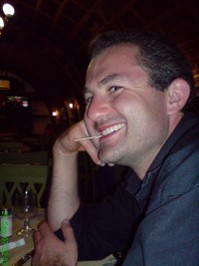Saul Newman
Born
in Australia
March 22, 1972
Genre
Influences
More books by Saul Newman…
“the sovereign state of exception is a politico-theological weapon designed to neutralise the threat posed not so much by liberalism but by more radical forms of politics, especially anarchism. Curiously enough, the state of exception – the condition in which the rule of law is suspended – itself resembles a form of anarchy, perhaps what Hannah Arendt referred to as the ‘anarchy of power’ that characterised totalitarian regimes. However, Schmitt is quick to distinguish the exception from anarchy and chaos: order in the juristic sense still prevails, even if it is, he says ominously, ‘not of the ordinary kind’. This is a kind of artificially induced ‘anarchy’, designed to preserve rather than overthrow the existing order, or – as we saw in Schmitt’s welcoming of the Nazi revolution – overthrowing it in order to preserve it. To borrow the concept of ‘immunisation’ from the theorist Roberto Esposito, the exception might be seen as gesture in which, in order to protect oneself from a virus, one injects oneself with it so that the system’s immune response is triggered. In the same way, to immunise itself against the threat of anarchy, the state suspends the rule of law and becomes ‘anarchic”
― Political Theology: A Critical Introduction
― Political Theology: A Critical Introduction
“For Lefort, modern democratic society, which was formed in the eighteenth century, removed the ontological certainties of previous orders and based itself instead on heterogeneity and division; it is structured by a symbolically empty place of power, left vacant by the absent body of the prince. As a result of the democratic revolutions of the eighteenth and nineteenth centuries, which according to Lefort split the orders of power, law and knowledge, society could no longer be represented as a single, unified body. However, this empty space of contingency created at the same time a desire for absolute foundations, for a point of transcendence – once provided by religion – that could unify a fragmented social order and master this experience of uncertainty. The persistence of religion is therefore a symptom of the uncertainty and contingency at the foundations of democratic society. This is also why, at various times, ideas of nation, community and people become substitutes for religion, attempting to fill the empty space of power and unify society. For Schmitt, sovereignty fulfils precisely this function. Such ideas, which as Lefort believes speak to a real, yet unavoidable, structural deficit in society, appear at moments when a perceived loss of legitimacy is seen to threaten the social order. The survival of religion itself in modern society – which now works on an imaginary rather than symbolic register – evokes the illusion that firm identity and absolute unity can be restored. The constant danger, for Lefort, is that these representations of identity become so invested with desire that they open the way to a totalitarian drive to forcibly reunite the social order.”
― Political Theology: A Critical Introduction
― Political Theology: A Critical Introduction
Is this you? Let us know. If not, help out and invite Saul to Goodreads.








































